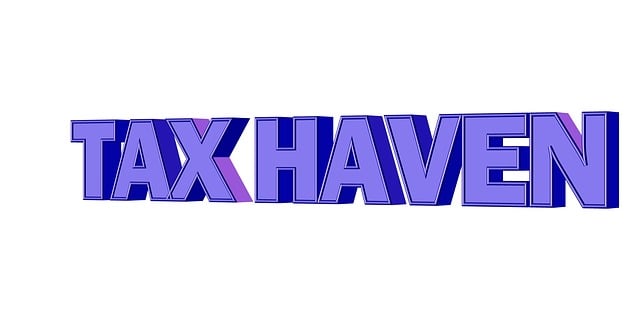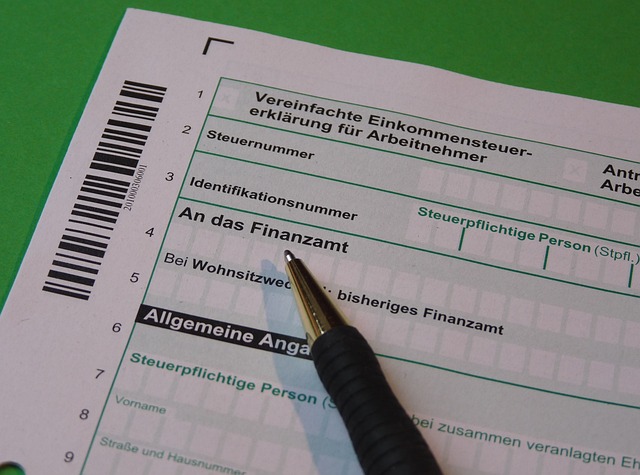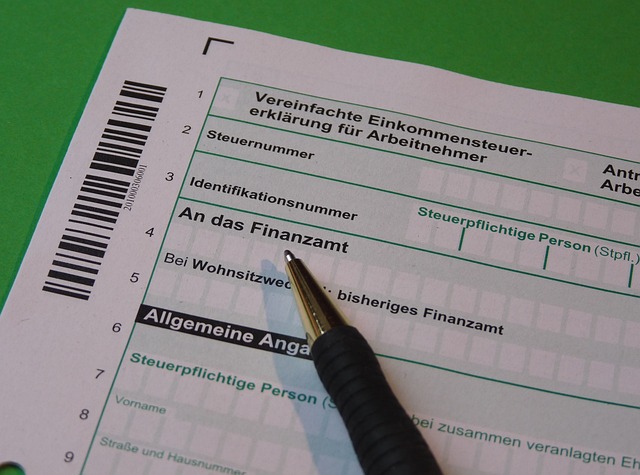The demand for accessible and high-quality UK educational textbooks translation services is rising, driven by a diverse student population and an increasing number of international students seeking education in the UK. Professional translation services are crucial for accurate knowledge transfer, preserving cultural nuances and academic concepts. These services employ expert translators with subject matter knowledge to overcome language barriers, ensuring complex academic concepts are effectively conveyed globally. Cultural sensitivity, timely delivery, and quality assurance processes ensure translations meet curriculum standards and resonate with diverse global audiences. Technological advancements streamline projects, offering enhanced accuracy and efficiency in the digital age, while fostering inclusivity and improving education across diverse schools.
In the dynamic landscape of education, the demand for professional UK educational textbooks translation services has never been more pronounced. As a nation with a diverse linguistic environment, ensuring accessible and accurate learning materials is paramount. This article delves into the critical role played by specialized translation services in facilitating knowledge transfer within the UK education sector. From understanding market demands to navigating cultural adaptations and leveraging technology, we explore key aspects shaping the future of textbook translations.
- Understanding the Demand for Textbook Translations in the UK Education Sector
- The Role of Professional Translation Services in Ensuring Accurate Knowledge Transfer
- Key Considerations When Choosing a Textbook Translation Provider
- Specialized Skills and Expertise Required for Educational Material Localization
- Quality Assurance Processes: Guaranteeing Precision in Textbook Translations
- Adapting Content for Different Cultural Contexts: A Delicate Balance
- Technological Advancements Streamlining Textbook Translation Projects
- Case Studies: Successful Textbook Translation Projects in the UK
- Cost Implications and Budgeting for High-Quality Educational Translations
- The Future of Textbook Translations: Trends Shaping the Industry
Understanding the Demand for Textbook Translations in the UK Education Sector

In the dynamic landscape of education, the demand for accessible and high-quality UK educational textbooks translation services has been on the rise. With a diverse student population and an increasing number of international students seeking quality education in the UK, there’s a pressing need for professional textbook translations that cater to various languages. This demand isn’t just about facilitating learning; it’s also about ensuring inclusivity and equal opportunities for all students, regardless of their first language.
UK educational textbooks play a pivotal role in shaping young minds, and accurate translations are essential to ensure that cultural nuances and academic concepts are conveyed effectively. Professional translation services step into this critical role, providing specialized expertise to translate textbooks not just word-for-word but also contextually, preserving the integrity of the original content. This ensures that students from diverse linguistic backgrounds can engage with their studies on a more profound level.
The Role of Professional Translation Services in Ensuring Accurate Knowledge Transfer

Professional translation services play a pivotal role in facilitating accurate knowledge transfer, especially in the realm of UK educational textbooks. With language barriers standing as significant obstacles to effective communication, these services ensure that complex academic concepts are conveyed flawlessly across diverse linguistic landscapes. By employing seasoned translators with subject matter expertise, they bridge the gap between cultural and linguistic differences, preserving the integrity of the original content while enhancing its accessibility.
In the context of UK educational textbooks, professional translation goes beyond mere word-for-word substitution. It involves meticulous research and a deep understanding of pedagogical principles to tailor the material for different target audiences. This ensures that students from diverse linguistic backgrounds can engage with the curriculum on equal footing, fostering inclusive learning environments that promote intellectual growth and cultural appreciation. Thus, UK educational textbooks translation services not only facilitate teaching and learning but also contribute to creating a more globally connected and informed society.
Key Considerations When Choosing a Textbook Translation Provider

When selecting a textbook translation provider, especially for UK educational materials, several critical factors come into play. Firstly, expertise in education and a deep understanding of pedagogical terminology are essential to ensure accurate translations that align with curriculum standards. Look for providers who have experience handling UK textbooks and can demonstrate proficiency in subjects like science, history, or mathematics.
Secondly, cultural sensitivity is paramount. Textbook translation goes beyond words; it involves conveying nuances and cultural references. A reliable service will employ native speakers and subject matter experts to bridge cultural gaps, ensuring the translated content resonates with students from diverse backgrounds. Additionally, timely delivery and a transparent project management process are vital to meet educational deadlines.
Specialized Skills and Expertise Required for Educational Material Localization

When it comes to translating UK educational textbooks, ensuring accuracy and cultural appropriateness is paramount. It’s not merely about word-for-word substitutions; educational content demands specialized skills to localize effectively. Translators must possess a deep understanding of pedagogy and subject matter expertise to convey complex ideas clearly and concisely in the target language.
Beyond linguistic proficiency, successful UK educational textbooks translation services require cultural sensitivity. Educational systems vary across regions, and what works in one might not be suitable for another. Experienced translators who specialize in this field stay abreast of these nuances, ensuring that the translated material resonates with learners from diverse backgrounds, fostering inclusivity and effective learning outcomes.
Quality Assurance Processes: Guaranteeing Precision in Textbook Translations

At premier UK educational textbooks translation services, quality assurance (QA) processes are meticulous and stringent. They begin with a thorough review by native-speaking experts who verify linguistic accuracy and natural flow in the target language. This initial phase ensures that the translated content not only conveys the same meaning as the original but does so in a way that resonates with readers from different cultural backgrounds.
Subsequent QA checks involve specialized editors who scrutinize the translation for consistency, terminology adherence, and academic precision. This multi-stepped approach guarantees that UK educational textbooks are not just linguistically sound but also conceptually accurate, maintaining the integrity of the original content while adapting it to meet the linguistic requirements of diverse global audiences.
Adapting Content for Different Cultural Contexts: A Delicate Balance

Adapting content for different cultural contexts is a critical aspect of professional textbook translation services, especially in the UK educational sector. Language is not just words on a page; it carries cultural nuances and references that can significantly impact understanding. A skilled translator must navigate this delicate balance by not only rendering the text accurately but also ensuring cultural appropriateness. This involves careful consideration of idioms, proverbs, and metaphors, which often have no direct translations but carry profound meanings in their original cultures.
UK educational textbooks, for instance, may include references to local customs, history, or geography that are irrelevant or even misleading in other contexts. A professional translation service employs native speakers and subject-matter experts to identify and replace such elements with equivalents that resonate in the target culture. This process not only makes the content accessible but also enriches it, fostering a deeper understanding among students from diverse backgrounds.
Technological Advancements Streamlining Textbook Translation Projects

In today’s digital era, technological advancements have revolutionized the landscape of textbook translations, particularly for UK educational resources. Automated translation tools and machine learning algorithms play a pivotal role in streamlining projects, ensuring faster turnaround times and enhanced accuracy. These innovations enable specialized UK educational textbooks translation services to process vast amounts of content efficiently, catering to the growing demand for accessible learning materials.
Advanced technologies not only facilitate quicker translations but also improve consistency across different language versions. This is particularly beneficial for maintaining the integrity of complex educational concepts. With sophisticated software, translators can collaborate in real-time, share terminologies, and ensure a uniform style guide, resulting in high-quality textbooks ready to enrich students’ learning experiences globally.
Case Studies: Successful Textbook Translation Projects in the UK

In the competitive landscape of education, UK educational textbooks translation services play a pivotal role in breaking down linguistic barriers and fostering inclusivity. Case studies demonstrate that successful textbook translations go beyond simple word-for-word substitutions. Professional translators must grasp not just the meaning but also the cultural nuances and pedagogical intent embedded in the original content. This involves extensive research, consultation with educators, and adherence to the UK’s educational standards to ensure the translated materials are both accurate and engaging.
One notable project involved translating a high school biology textbook from Spanish into English for use across diverse schools in the UK. The translation team paid meticulous attention to scientific terminology, ensuring precise communication of complex concepts. They also incorporated visual aids and interactive elements to enhance comprehension, reflecting the latest trends in UK educational practices. This initiative not only improved accessibility for non-native English speakers but also enriched the learning experience for all students, highlighting the transformative power of professional textbook translations in the UK.
Cost Implications and Budgeting for High-Quality Educational Translations

When considering UK educational textbooks translation services, understanding cost implications is essential for effective budgeting. The price for such specialized translations can vary greatly depending on several factors, including the language pair, complexity of content, word count, and deadline. High-quality educational translations often require skilled linguists with subject matter expertise to ensure accuracy and maintain the intended educational value. This level of professionalism comes at a cost, but it’s crucial for producing materials that meet academic standards worldwide.
Institutions and publishers should allocate adequate funding to ensure translators have the necessary resources. Budgeting includes not only translation but also proofreading, formatting, and sometimes, localization to make textbooks culturally relevant. While cost may be a concern, investing in professional translations ensures educational resources are accessible to diverse student bodies, facilitating inclusive learning environments. It’s a strategic decision that can enhance knowledge retention and improve overall academic outcomes.
The Future of Textbook Translations: Trends Shaping the Industry

The future of textbook translations is being shaped by several key trends, driven largely by technological advancements and shifting educational landscapes. One prominent trend is the increasing demand for UK Educational Textbook Translation Services. With global education becoming more interconnected, there’s a need to make textbooks accessible across borders. This not only promotes diverse learning environments but also allows educators to select the best resources regardless of their location.
Automation and machine translation technologies are playing a significant role in this evolution. While human translators will always be essential for complex texts requiring cultural nuance, AI-powered tools enhance efficiency and reduce costs. They enable faster turnaround times, making it possible to translate textbooks and educational materials promptly to meet the needs of students worldwide. This trend is expected to continue as technology improves, further shaping the UK Educational Textbook Translation Services industry in exciting directions.
Professional translation services play a pivotal role in meeting the growing demand for accurate and culturally adapted UK educational textbooks. By prioritizing specialized skills, rigorous quality assurance, and technological innovations, service providers ensure that knowledge is transferred effectively across diverse linguistic landscapes. As the industry evolves, staying attuned to emerging trends and budget considerations will be essential to shaping a promising future for textbook translations in the UK education sector.
